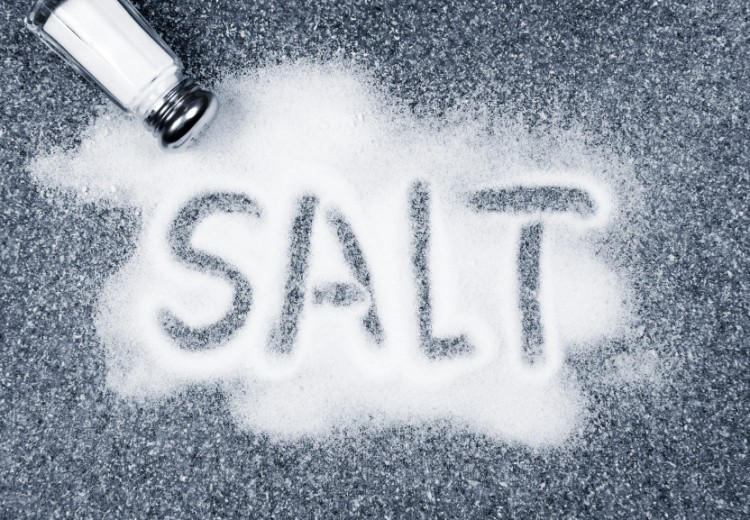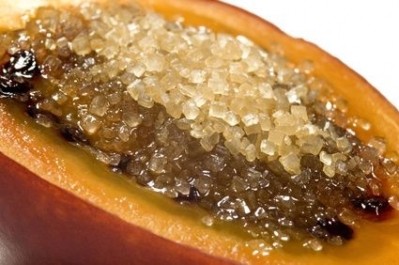Higher dietary salt intakes reduce gout triggers: Study

The findings, which appear in Arthritis & Rheumatology, a journal produced by the American College of Rheumatology (ACR), found that a high-sodium (salt) intake, such as that found in a typical American diet, effectively lowered uric acid levels.
The relationship between salt intake and uric acid is controversial, and these results do nothing to quell this debate.
However similar studies in the past have suggested similar findings. Despite the results the researchers did not support the idea of consuming excessive or even the typical levels of salt found in the American diet in order to lower uric acid levels.
“Consuming excessive amounts of sodium could have harmful consequences on other aspects of health, like blood pressure,” said Dr Stephen Juraschek of the Johns Hopkins University School of Medicine and lead author of the study.
“However, as sudden changes in uric acid levels can trigger gout flares, knowing that sodium causes uric acid levels to fluctuate can help patients and physicians understand more about potential dietary causes of gout flares,” he added.
Study criteria
The researchers adopted a randomised, crossover feeding trial in 103 adults diagnosed with pre- or stage 1 high blood pressure.
Subjects were randomly assigned to receive either a Dietary Approach To Stop Hypertension (DASH) diet or a control diet (a typical American diet).
The DASH diet emphasises fruits, vegetables, and low-fat dairy foods along with reduced consumption of saturated fat, total fat, and cholesterol.
The diet also included whole grains, poultry, fish, and nuts and contained smaller amounts of red meat, sweets, and sugar-containing beverages.
They were then given meals, which ranged in salt levels: low (60 mmol per day), medium (120 mmol per day), and high (180 mmol per day). These meals were given to the subjects for 30 days in random order.
The high salt level reflected typical salt intakes of a United States adult consuming 2600 kcal of food per day.
Regardless of diet, medium salt intake significantly reduced uric acid levels compared to low salt intake (DASH: -0.35 mg/dL. Control: -0.33 mg/dL)
Similarly, compared to low salt intake, high salt intake significantly reduced uric levels (DASH: -0.33 mg/dL. Control: -0.53 mg/dL)
Overall, when combined across both diets, compared to low salt intake, medium salt intake lowered SUA by -0.34 mg/dL while high salt intake lowered SUA by -0.43 mg/dL.
There was no significant difference between high versus medium-salt intake across both diets (-0.09 mg/dL).
“While reducing sodium intake from medium to low increased uric acid levels, increasing sodium intake from medium to high did not decrease uric acid levels,” said Juraschek
“Thus, our study does not support the idea that people should consume excessive amounts of sodium to lower uric acid levels.”
An additional study on the link between salt levels and uric acid recruited 27 men in an experiment that showed an increase in salt intake from 20 mmol/d to 200 mmol/d decreased uric acid levels by 1 mg/dL.
Mechanism of action?
The researchers were unable to establish an exact mechanism of action, hypothesising that a decreased rate of salt reabsorption in response to a higher salt intake would also decrease the rate of urate reabsorption.
Despite being unable to establish a mechanism, Juraschek believed the DASH diet emphasised a holistic, dietary approach to eating had benefits beyond gout.
“The DASH diet has positive effects on blood pressure and kidney function,” he explained. “However, there are specific foods (organ meats, sugar-sweetened beverages, alcohol/spirits, red meat, shellfish) that have been associated with gout flares.”
“Further, we showed in another study that lowering glycaemic index can lower uric acid as well. Thus, within the context of a DASH diet there may still be a role for avoiding some foods (shellfish, high glycaemic index foods), but our study showed that simply following the DASH diet as a whole is also quite effective.”
The Salt Federation, based in the United Kingdom, has always advised on maintaining a balanced amount of salt in the diet stating that salt’s relationship to blood pressure was modulated by many dietary and non-dietary factors, including the interaction and balance of a range of essential minerals.
"The role of salt within this process is still not fully understood," they said. "Impartial and carefully controlled studies are required to demonstrate clearly the safety and benefits of salt reduction."
Source: Arthritis & Rheumatology
Published online ahead of print, DOI 10.1002/art.39813
“Effects of the Dietary Approaches To Stop Hypertension (DASH) Diet and Sodium Intake on Serum Uric Acid.”
Authors: Stephen Juraschek et al.




















